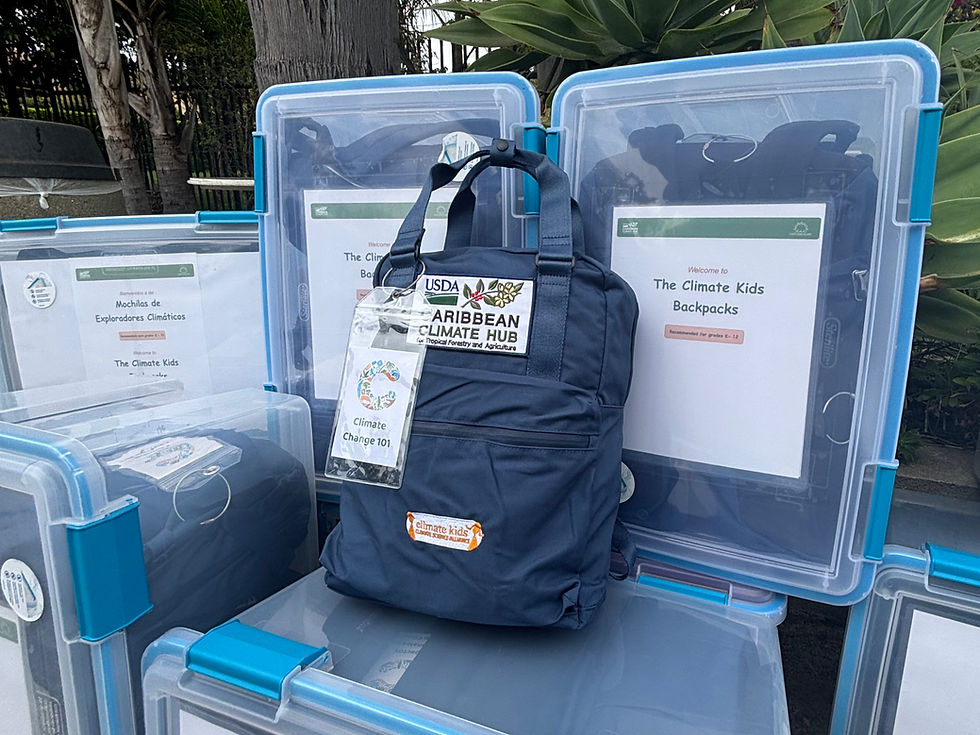Climate Kids - Mexico Joins Community Science Air Quality Monitoring Program
- Climate Kids HQ

- Mar 15, 2020
- 2 min read
In partnership with the NSF Center for Aerosol Impacts on Chemistry of the Environment, our Climate Kids - Mexico Team received 10 Purple Air - Air Quality Sensors to participate in a large scale community science monitoring program and better understand the impacts of aerosols on public health and climate.

In partnership with the NSF Center for Aerosol Impacts on Chemistry of the Environment, the Climate Science Alliance was excited to deliver over 10 Purple Air - Air Quality Sensors to our Climate Kids Mexico Team.
Purple Air is a network of community science sensors throughout the world that monitor particles in the air. By using these devices, students can ask questions and interpret data to better understand the impact of these small particles on themselves, their community, and their environment.
The Purple Air module is a part of the Climate Science Alliance’s newest educational offering - the Climate Science and Atmospheric Chemistry Traveling Trunk. This trunk brings to life aerosols - one of the most poorly understood components of Earth’s atmosphere - and their impact on our lives and the changing climate, while inspiring and encouraging students to do their part to help protect the earth. Through science, art, and storytelling activities, students will gain an understanding of the current science behind atmospheric chemistry, the impact of aerosols on climate and public health, and how scientists are working to better understand the issues that we face at the intersection of these topics.
Educators in our Climate Kids - Mexico program have recently been incorporating this trunk into their programs with much success. The Purple Air Devices will serve to enhance real world student learning and hands on connection to the impacts of aerosols to our planet.

Thank you to our partners at the NSF Center for Aerosol Impacts on Chemistry of the Environment for making this happen!























Comments